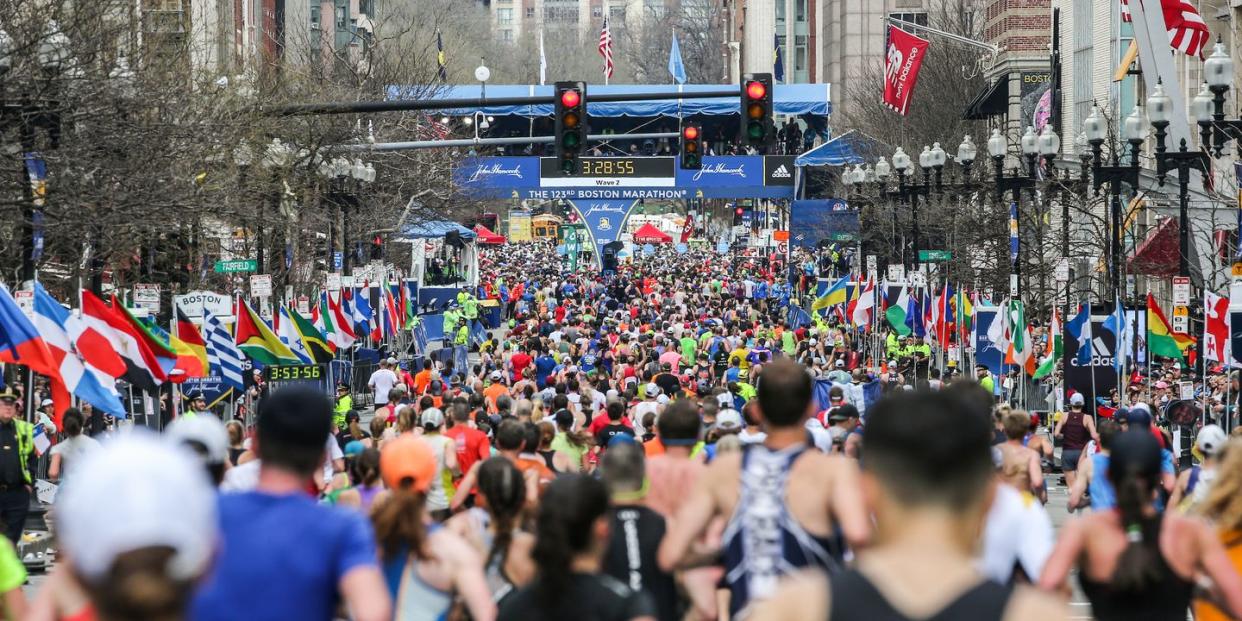Boston Marathon Postponed, Will Be Held on September 14

Because of the ongoing novel coronavirus crisis, the 2020 Boston Marathon will now be held on September 14.
The race has never been fully canceled and has been run every year since 1897.
The Boston Marathon was first run in 1897, making it the oldest annual marathon in the world. But with the novel coronavirus spreading through the United States and across the globe, marathon officials along with state and local officials have decided to postpone the race, scheduled for April 20, until September 14 of this year.
The postponement makes Boston just one of many major road races and sporting events considering postponement or cancellation in 2020.
“On matters of public health and safety we take our guidance from the officials entrusted with protecting the public in this area,” said Tom Grilk, CEO of the Boston Athletic Association (BAA) said in a statement Friday morning. “We understand our role, along with our partners, in ensuring a safe environment for all participants, volunteers, spectators, and supporters that meets the standards set by those officials.”
The 124th Boston Marathon has been postponed - the @BAA understands the city's decision that the marathon cannot be held on April 20, and we offer our full support to take all efforts to postpone until September 14, 2020. Read more: https://t.co/CsnHNKOAZz pic.twitter.com/eBEGDM18FT
— Boston Marathon (@bostonmarathon) March 13, 2020
The BAA also said that registered participants and volunteers will receive additional information in the coming days. The BAA 5K, which draws a field of 10,000 participants and is held the weekend of the marathon, will also be rescheduled to a later date.
Since it started, the Boston Marathon has never been fully canceled, except in 1918 when a marathon military relay was run instead. The race was stopped in 2013 when two bombs were detonated at the finish line.
A full cancellation of the race would have been a logistical hurdle for BAA officials because of how a majority of the field—about 31,500 for the April 20 race—is made up of time qualifiers.
The Boston Marathon is unique because it benefits the fleet of foot to gain entry. Since 1970, the primary way for runners to enter Boston has been by running a qualifying time in another marathon. For the 2020 race, about 80 percent of the field is made up of time qualifiers; the BAA sets aside a few thousand bibs for runners affiliated with one of the marathon’s official charities.
For many, running a Boston qualifying time (or BQ) is a lifetime running achievement. That could have potentially gone out the window with a full cancellation of the race.
This alternative scenario, first reported by the Boston Globe on March 12, allows those who qualified and raised money to race in the event to still participate this year while also offsetting potential economic loss to the greater Boston community that would come with a complete cancellation.
A postponement of an event as large as the Boston Marathon certainly isn’t unprecedented as the coronavirus outbreak continues in the U.S. Just this week, the NBA, MLS and NHL have temporarily suspended their seasons. The NCAA March Madness basketball tournaments for men and women are also canceled.
And various races around the globe—the Tokyo and Rome Marathons, the World Athletics Half Marathon Championships in Poland, and Paris Half Marathon to name a few—have limited the number of participants or outright canceled the events to help stop the potential spread of the virus.
“The BAA’s mission of promoting health through sports, especially running, has guided our organization for more than a century. In collaboration with our many partners, we look forward to welcoming the world to Boston in September in celebration of the 124th Boston Marathon,” Grilk said in the statement.
You Might Also Like
